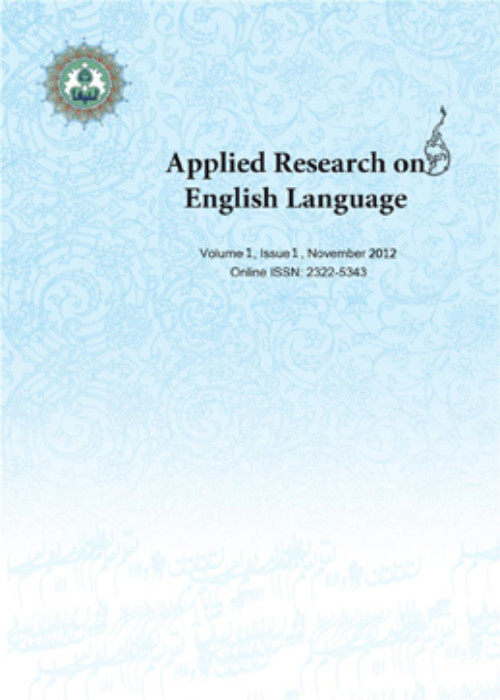The Effect of Explicit and Implicit Corrective Feedback on Segmental Word-Level Pronunciation Errors
Author(s):
Abstract:
Over the last few years, the realm of foreign language learning has witnessed an abundance of research concerning the effectiveness of corrective feedback on the acquisition of grammatical features, with the study of other target language subsystems, such as pronunciation, being few and far between. In order to bridge this gap, the present study intended to investigate and compare the immediate and delayed effect of explicit (overt) and implicit (covert) corrective feedback (CF) on treating segmental word-level pronunciation errors committed by adult EFL learners of an institute in Tabriz named ALC. To this end, through a quasi-experimental study and random sampling, three groups were formed, an explicit, an implicit and a control group, each consisting of 20 low proficient EFL learners. Besides, considering the levels that learners were assigned to, based on the institutes criteria, a Preliminary English Test (PET) was administered in order to determine the proficiency level of learners. Having administered the pretest before treatment, to measure the longer-term effect of explicit vs. implicit CF on segmental word-level pronunciation errors, the study included delayed posttests in addition to immediate posttests all of which included reading passages containing 40 problematic words. The collected data were analyzed by ANCOVA and the obtained findings revealed that both explicit and implicit corrective feedback are effective in reducing pronunciation errors showing significant differences between experimental and control groups. Additionally, the outcomes showed that immediate implicit and immediate explicit corrective feedback have similar effects on reduction of pronunciation errors. The same result comes up regarding the delayed effect of explicit feedback in comparison with delayed effect of implicit feedback. However, the delayed effect of explicit and implicit CF lowered comparing to their immediate effect due to time effect. Pedagogically, this study could enhance teachers effort, knowledge, and beliefs in teaching pronunciation and providing corrective feedback to pronunciation errors.
Keywords:
Language:
English
Published:
Applied Research on English Language, Volume:6 Issue: 2, Apr 2017
Pages:
237 to 266
magiran.com/p1698424
دانلود و مطالعه متن این مقاله با یکی از روشهای زیر امکان پذیر است:
اشتراک شخصی
با عضویت و پرداخت آنلاین حق اشتراک یکساله به مبلغ 1,390,000ريال میتوانید 70 عنوان مطلب دانلود کنید!
اشتراک سازمانی
به کتابخانه دانشگاه یا محل کار خود پیشنهاد کنید تا اشتراک سازمانی این پایگاه را برای دسترسی نامحدود همه کاربران به متن مطالب تهیه نمایند!
توجه!
- حق عضویت دریافتی صرف حمایت از نشریات عضو و نگهداری، تکمیل و توسعه مگیران میشود.
- پرداخت حق اشتراک و دانلود مقالات اجازه بازنشر آن در سایر رسانههای چاپی و دیجیتال را به کاربر نمیدهد.
In order to view content subscription is required
Personal subscription
Subscribe magiran.com for 70 € euros via PayPal and download 70 articles during a year.
Organization subscription
Please contact us to subscribe your university or library for unlimited access!


